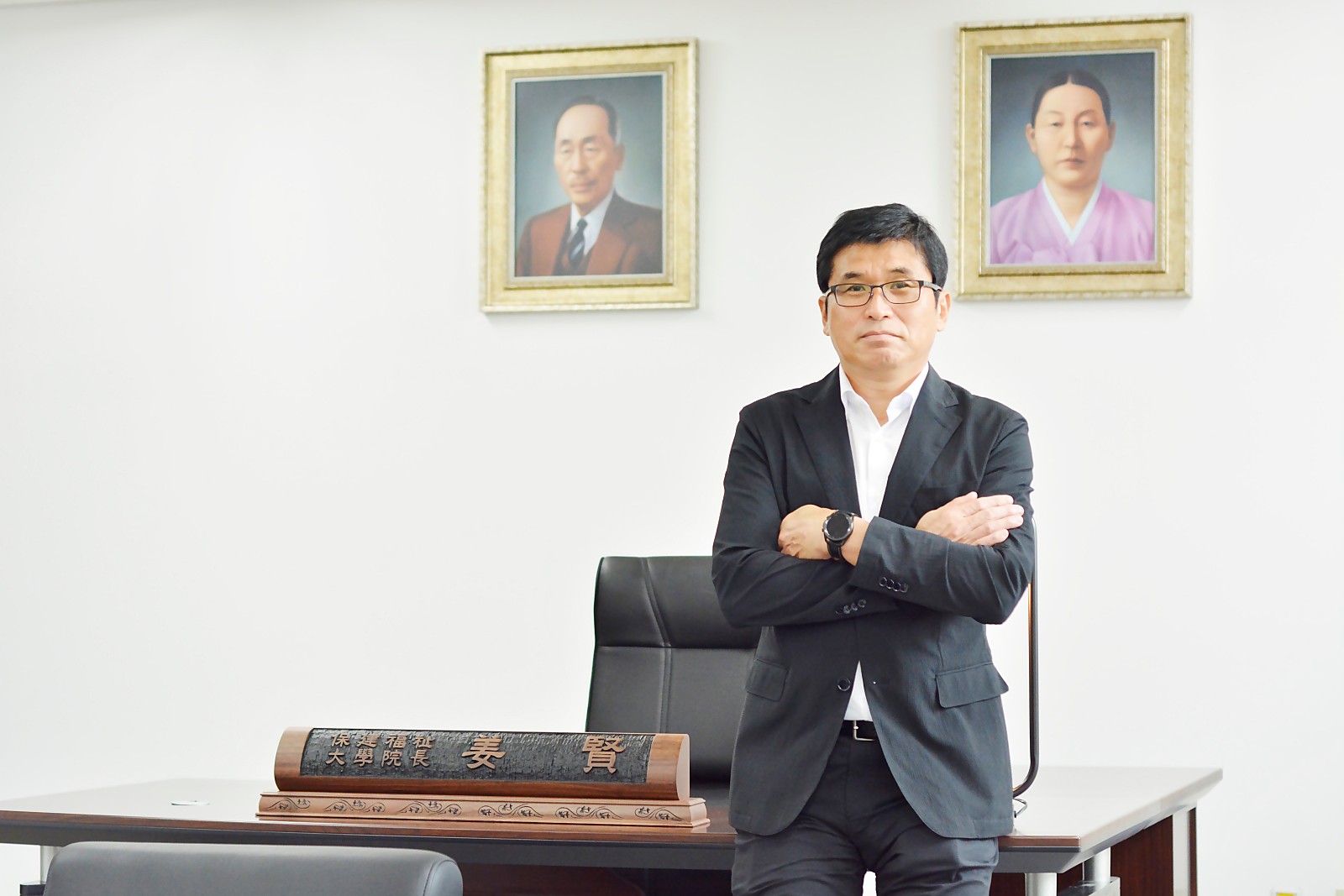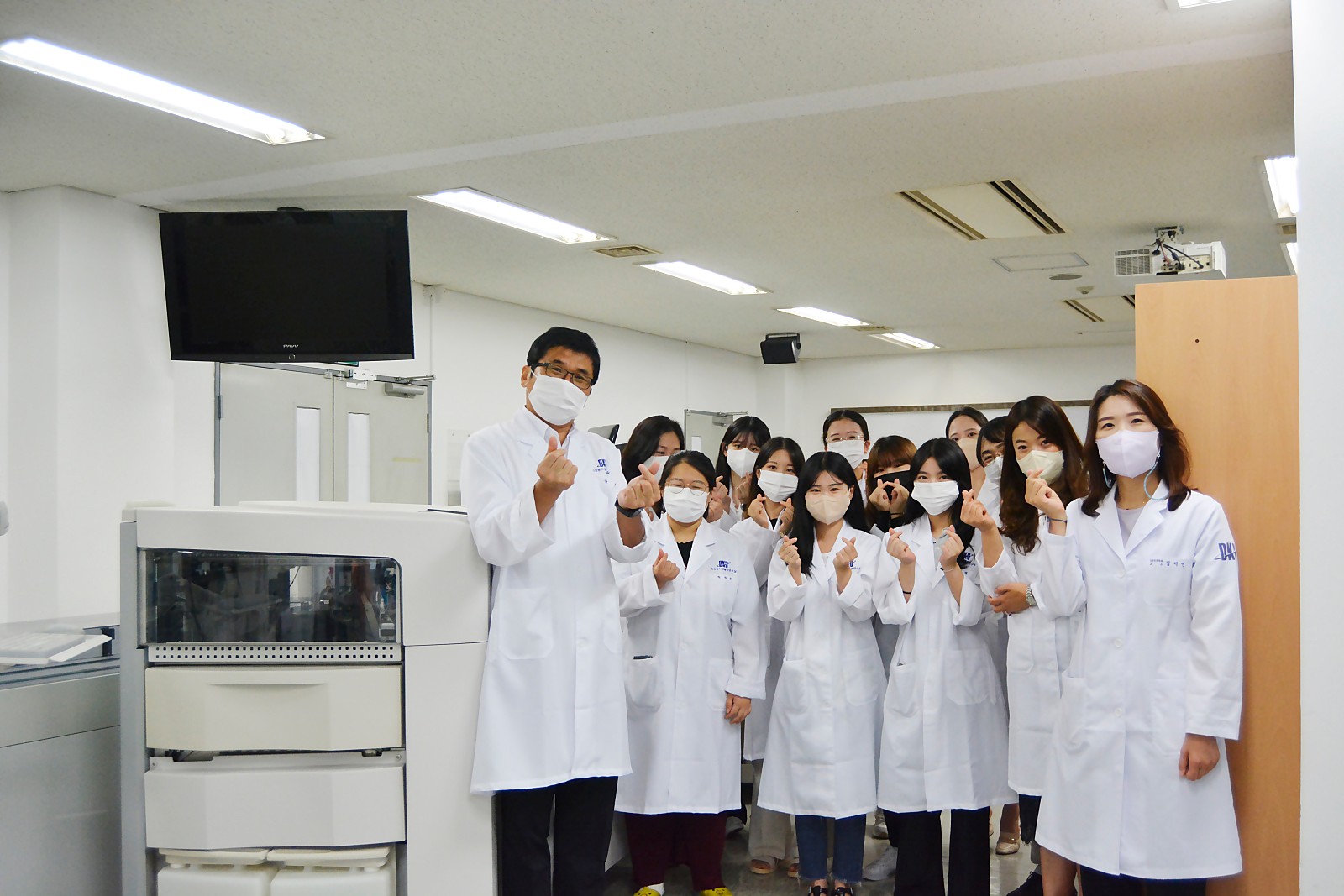Dankook University (DKU)’s Dept. of Biomedical Laboratory Science Professor Kang Hyun and his research team are working to develop South Korea’s first therapeutic agent for atopic dermatitis (AD) using marine fisheries by-products. This project, selected by the Ministry of Oceans and Fisheries (MOF)’s ‘Technical Development of Biomaterialization of Marine Fisheries By-products Program’, will receive 2.3 billion won (about 1.7 million dollars) in research funds over the next six years.
 |
| ▲ Professor Kang Hyun from the Dept. of Biomedical Laboratory Science (Photo from Dankook University) |
Professor Kang Hyun revealed that about 850,000 tons of marine and fisheries by-products are created annually, with most being discarded through fishing and processing. These by-products are a huge loss to the industry, as high-quality proteins, functional elements, and biological resources are going to waste. The research team led by Professor Kang Hyun wants to put this resource rich waste to good use and is working to turn it into a therapeutic agent for AD.
The research is using waste created by fishing and shellfish farming on the west coast of Chungcheongnam-do and includes halibut, snapper, oyster, and mussel. The bones and scales of fish, shells, and the adductor muscle of shellfish, as well as the eggs of sea urchins are all marine fisheries by-products. After freeze-drying the waste, the research team grinds them to produce peptides, a small protein molecule, by using the hydrolysis of protein. The team’s goal is to create a core base material for a therapeutic agent to treat AD using isolated and purified peptides developed through the filtering process.
1. Congratulations on your project selected as MOF’s ‘Technical Development of Biomaterialization of Marine Fisheries By-product Program.’ How did you feel when your idea was selected as a national project?
I was very delighted to receive the opportunity to develop a new therapeutic agent using our research team’s biggest asset, ‘3D virtual structure molecular modeling technology.’ This technology, due to its strength in peptide molecular modeling, was selected for the Ministry of Trade, Industry and Energy’s ‘Bio-Industry Core Technology Development Program’ to develop peptidomimetic cosmetics. That achievement enabled us to be selected for the MOF’s ‘Technical Development of Biomaterialization of Marine Fisheries By-products Program.’
2. What does Clinical Pathology mean to you?
Clinical pathology is a field of medical science that mediates science and medicine. I believe that its research results can lead to industrialization, thus making it a comprehensive study of ‘life sciences.’
3. Was there a reason behind choosing to develop a new treatment for atopic dermatitis?
Atopic dermatitis (AD) has a high prevalence rate in infants and is tough to treat. Our idea is to use molecular immunological techniques for treatment because until now, medications have been made adjuvant, and have only been used for the skin. We plan to develop material for improving AD by clearly setting molecular/cellular targets correlating to the stages of the immune system: first phase skin, second phase intrinsic immunity, and third phase adaptive immunity. This is newly attempted research in South Korea.
4. How will the therapeutic agent for atopic dermatitis using marine fisheries by-products be different from steroid-based solutions that are used at present?
Peptides have characteristics such as 'biocompatibility' and 'specificity in vivo', so even a small amount can show strong pharmacological action and biological activity with fewer side effects, as opposed to existing steroid-based therapeutic agents that have many side effects.
5. What is something remarkable or expected from this research process?
I expect symbiotic development with the region that has a high concentration of disposal of marine fisheries by-products on the west coast of Chungcheongnam-do. As the consumption of fisheries products is huge in Chungcheongnam-do, by-products wastes are relative. If facilities that can dispose and store the by-products are established in Chungcheongnam-do as a result of our new treatments, it can create an economic ripple effect for the region.
6. Did you experience any difficulties or develop any concerns during your research?
The reason why I have been able to take on challenges and seek out new adventures is because of the poor research environment in our regional universities. To produce research results that take advantage of the regional university's strengths, we had to focus on research day and night. As a result, I have been able to produce anti-aging medical cosmetics, hair loss treatments, and so on.
7. We heard that you are also working on developing various medications, including Midostaurin. Do you have any advice for those who dream of engaging in the field?
What I value are choice, concentration, challenge, and making a passionate effort. When a hypothesis is selected, I concentrate very deeply on the research. Then the difficulties associated with research and development are more easily resolved. If you do not challenge yourself, there will be no new creative research items. Without passionate efforts, you cannot get the results you desire.
 |
| ▲ Professor Kang and His Research Team in the Laboratory (Photo from Dankook University) |
Professor Kang Hyun and his research team are working on developing a therapeutic agent for atopic dermatitis using marine by-products. This will help the development of both DKU and Chungcheongnam-do with the support of MOF. He emphasized that strong-will and effort are important to achieving any goal including the objectives of this project. We are all looking forward to a successful result from his efforts to treat AD and the many other challenges he undertakes in the future.
김주연, 구시현, 김혜선 dankookherald@gmail.com

![[Campus Magnifier] Let's Surf the Library!](/news/photo/202404/12496_1765_4143.jpg) [Campus Magnifier] Let's Surf the Library!
[Campus Magnifier] Let's Surf the Library!
![[Campus Magnifier] Let's Surf the Library!](/news/thumbnail/202404/12496_1765_4143_v150.jpg)





